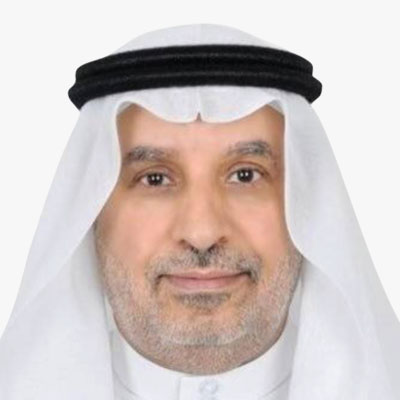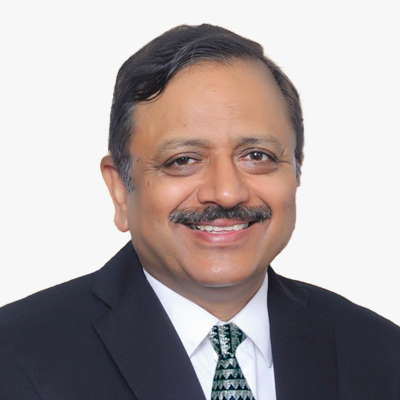Session Highlight

Moderator
Sanjay Kumar
CEO
Geospatial World
India

Ron S. Jarmin
Deputy Director and Chief Operating Officer
U.S. Census Bureau
USA

Dean Angelides
International Corporate Director
Esri
USA
Over his 40-year professional career, Dean Angelides has worked with thousands of organizations to implement GIS for improving operations and decision-making. 35 years ago he co-founded a GIS services start-up. Dean joined Esri in 2005.
Dean has worked with organizations across dozens of industries. He has helped them devise strategies that leverage GIS in their business, and to successfully apply new methods that transform their organizations.
Dean is Corporate Director with responsibilities for overseeing all aspects of Esri's international business. Dean serves on the World Geospatial Industry Council Executive Board. He is dedicated to ensuring that the Geographic Approach is applied to successfully overcome our world's toughest challenges.

Mohammed Yahya Alsayel
President
General Authority for Survey and Geospatial Information (GEOSA)
Saudi Arabia

Virtual
Stefan Schweinfest
Director
United Nations Statistics Division
Session Highlight

Moderator
Sanjay Kumar
CEO
Geospatial World
India

Judith Pryor
First VP & Vice Chair
EXIM Bank
USA
Judith DelZoppo Pryor, appointed by President Biden, serves as First Vice President and Vice Chair of the Export-Import Bank (EXIM) Board until January 20, 2025. With over 25 years of leadership in multinational businesses, she specializes in corporate and marketing communications, public affairs, and business development. Pryor previously served on EXIM's Board and held roles in the Obama Administration at the U.S. International Development Finance Corporation. Her career spans from Fortune 500 companies to startups in broadcast, satellite communications, and international finance. A Cleveland native, Pryor holds a B.A. in Communications from Bowling Green State University and studied at the Universidad de Madrid.

Ronald Bisio
SVP
Trimble
USA

Marc Prioleau
Executive Director
Overture Maps Foundation
USA
Marc Prioleau, a seasoned business development executive with over two decades of experience in the mapping and location industry, is the new Executive Director of the recently launched Overture Maps Foundation (OMF). The OMF is an initiative launched by the Linux Foundation, focusing on creating high-quality, interoperable open map data for organizations that use the data to develop mapping and location services.
Prioleau's extensive experience in the industry includes his most recent role as Head of Business Development for Mapping at Meta. There he led Meta's involvement in founding OMF along with Microsoft, Amazon, and TomTom. Before Meta, Prioleau was the Head of Location Partnerships at Uber as well as VP of corporate and business development at Mapbox. Prioleau's passion for open map data has led him to promote its use across the mapping industry. He has been a contributor to the OpenStreetMap project since 2006.
Session Highlight

Moderator
Bert Klaassens
VP - Europe
Geospatial World
The Netherlands

Tan Boon Khai
CEO
JTC Corporation
Singapore
Mr Tan Boon Khai was appointed as the Chief Executive Officer of JTC Corporation on 1 Sep 2020. Prior to this, he was the Chief Executive of the Singapore Land Authority (SLA) from 1 May 2015 till 31 August 2020.
Mr Tan joined SLA from CapitaLand Limited, where he was with since 2010. In his time at CapitaLand, he held several portfolios, including as Regional General Manager (Singapore and Malaysia) for The Ascott Limited from April 2011 to 2014.
Before joining the private sector, Mr Tan served as Justice's Law Clerk and Assistant Registrar of the Supreme Court, as well as District Judge in the then Subordinate Courts of Singapore. He is also called as an advocate and solicitor in Singapore. In 2006, he was seconded to the Ministry of Health as General Counsel and Company Secretary for Ministry of Health Holdings Pte Ltd. His last appointment in the Public Service was as Deputy Senior State Counsel / Deputy Public Prosecutor in the Attorney-General's Chambers of Singapore.

Massimo Claudio Comparini
Deputy CEO & ESVP
Thales Alenia Space
Italy

Adina Gillespie
VP-Strategic Initiatives - Geospatial Content
Hexagon
USA
Adina Gillespie is responsible for key strategic initiatives of the Geospatial Content Solutions business unit within Hexagon's Geosystems division. Her priority is establishing collaborative programs and partnerships for delivering large-scale geospatial initiatives. She has nearly 20 years of experience in the space sector, where she delivered innovative programs and strategic advice in the application of small satellite technology, including for governments and commercial users. Adina is a Fellow of the UK Royal Aeronautical Society, has served on various government and corporate committees and is a board member of the World Geospatial Industry Council (WGIC).

Fatma Fahad
Spokes Person & Media consultant
GEOSA
Saudi Arabia







































